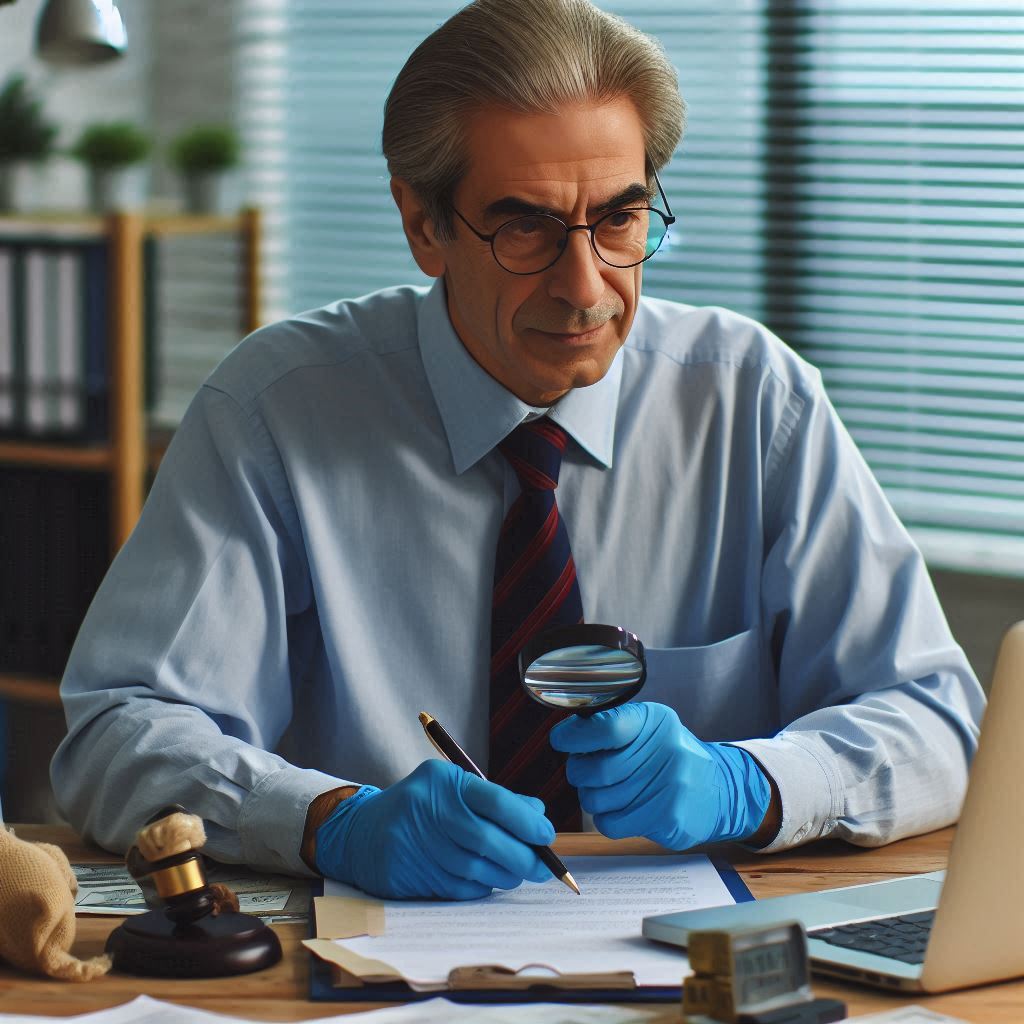Introduction
Claims adjusters play a critical role in legal disputes. They evaluate claims, gather evidence, and negotiate settlements.
Their work directly impacts the outcome of legal cases. Following best practices is crucial for achieving successful resolutions.
Understanding the role of a claims adjuster is essential. They must assess damages, interpret policy coverage, and communicate with involved parties.
Their decisions can influence legal outcomes and financial settlements. Thus, adhering to best practices helps ensure fair and efficient resolutions.
Best practices for claims adjusters include thorough documentation, clear communication, and impartiality.
Accurate records and detailed reports support the resolution process.
Effective communication with all parties involved builds trust and helps clarify complex issues. Impartiality ensures that decisions are fair and unbiased.
The importance of following these best practices cannot be overstated.
Adhering to them reduces errors, minimizes disputes, and enhances professional credibility.
Claims adjusters who follow these practices contribute to smoother legal proceedings and more satisfactory outcomes for all parties.
In summary, the role of claims adjusters is pivotal in legal disputes. Emphasizing best practices is key to achieving successful results.
Proper documentation, clear communication, and impartiality are fundamental to their success in resolving legal claims effectively.
Understanding the legal framework
Familiarize yourself with relevant laws and regulations
When handling legal disputes as a claims adjuster, it is essential to have a strong understanding of the legal framework in which you are operating.
This involves being familiar with relevant laws and regulations that govern claims processing and settlement.
By staying informed about any changes in legislation that may impact your work, you can proactively adjust your practices to remain compliant and efficient.
Consult with legal experts when necessary to ensure compliance
In complex legal disputes, it is recommended to consult with legal experts who specialize in the specific area of law relevant to the claim.
Legal professionals can provide valuable guidance on how to navigate intricate legal processes and ensure that your actions are in line with legal requirements.
By seeking their input, you can minimize the risk of non-compliance and potential legal challenges.
Documenting and gathering evidence
Documentation and gathering evidence are crucial aspects of a claims adjuster’s role in legal disputes.
By carefully documenting all interactions and collecting relevant evidence, adjusters can strengthen their case and ensure a fair resolution.
Transform Your Career Today
Unlock a personalized career strategy that drives real results. Get tailored advice and a roadmap designed just for you.
Start NowHere are some best practices to follow when it comes to documenting and gathering evidence:
Keep detailed records of all interactions
It is essential for claims adjusters to keep detailed records of all interactions with claimants and other parties involved in the dispute.
This includes phone calls, emails, meetings, and any other form of communication.
By documenting these interactions, adjusters can track the progress of the claim and have a clear record of all discussions.
Collect and organize relevant documents
Claims adjusters should collect and organize all relevant documents related to the case.
This may include police reports, medical records, repair estimates, and witness statements.
By gathering these documents, adjusters can have a complete picture of the incident and strengthen their case with solid evidence.
Take photos or videos of the scene
If possible, claims adjusters should take photos or videos of the scene of the incident.
Visual evidence can be powerful in a legal dispute and help support the adjuster’s assessment of the situation.
Documenting the scene can provide a clear picture of what happened and support the adjuster’s findings.
Overall, documenting and gathering evidence are crucial steps in a claims adjuster’s process when handling legal disputes.
By following these best practices, adjusters can build a strong case, ensure fairness, and work towards a successful resolution.
Read: Top Forensic Accounting Certifications
Conducting a thorough investigation
The third best practice for claims adjusters in legal disputes is conducting a thorough investigation.
This step is crucial in ensuring that all information is gathered accurately and objectively.
Interviewing all parties involved in the claim
- Ask detailed questions to get a clear understanding of the incident.
- Listen carefully to each party’s perspective and take notes.
- Document all statements and ensure accuracy.
Verifying the credibility of witnesses and evidence presented
- Check for inconsistencies in statements from witnesses.
- Look for any bias or motive that may affect credibility.
- Review the chain of custody for any physical evidence.
Utilizing investigative tools like surveillance footage or background checks
- Seek out any video recordings that may provide additional context.
- Conduct background checks on key individuals involved in the claim.
- Use forensic experts if needed to analyze technical evidence.
By following these steps, claims adjusters can ensure that their investigation is thorough and unbiased.
This will ultimately help in resolving legal disputes more effectively and efficiently.
Read: Building a Successful Claims Adjuster Career
Communicating effectively
Maintain open lines of communication with claimants, legal representatives, and other stakeholders
Effective communication is essential for claims adjusters when dealing with legal disputes.
Showcase Your Business Today
Reach thousands of readers actively exploring professional services. Publish your business profile and grow your audience now.
Publish NowIt is crucial to maintain open lines of communication with all parties involved, including claimants, legal representatives, and other stakeholders.
By keeping communication channels open, you can address any concerns or questions promptly, which can help prevent misunderstandings and conflicts from escalating.
This proactive approach can also help build trust and rapport with all parties.
Clearly explain the claims process and timeline to all parties involved
In addition to maintaining open communication, it is important to clearly explain the claims process and timeline to all involved.
This includes outlining the steps that will be taken, deadlines that need to be met, and any documentation that may be required.
By setting clear expectations from the beginning, you can help manage the claimant’s and other parties’ expectations and reduce the likelihood of disputes arising later.
Clear communication can also help streamline the claims process and ensure that all parties are on the same page.
Document all communication in writing to avoid misunderstandings
Documenting all communication in writing is another best practice for claims adjusters.
This includes emails, phone conversations, letters, and any other form of communication.
By documenting all interactions, you can create a clear record of the discussions and agreements reached.
Having written records of communication can also be valuable in case disputes arise later on.
These records can serve as evidence of what was discussed and agreed upon, helping to resolve any discrepancies or misunderstandings that may arise.
In short, effective communication is key for claims adjusters in legal disputes.
By maintaining open lines of communication, clearly explaining the claims process, and documenting all interactions in writing, claims adjusters can navigate legal disputes successfully and help achieve favorable outcomes for all parties involved.
Read: Insurance Laws Impacting Claims Adjusters’ Work

Evaluating claims fairly and objectively
When it comes to handling legal disputes as a claims adjuster, it is crucial to evaluate claims fairly and objectively.
This not only ensures that justice is served, but also maintains the credibility and reputation of the insurance company.
Here are some best practices to follow when evaluating claims:
Consider all available evidence and information before making a decision
One of the most important aspects of evaluating claims is to gather all relevant evidence and information before coming to a decision.
This includes reviewing the policy details, statements from all parties involved, and any other pertinent documentation.
By having a complete picture of the situation, you can make a more informed and fair decision.
Apply consistent criteria when assessing the validity of claims
Consistency is key when evaluating claims to ensure that each claim is assessed based on the same criteria.
By using a standardized evaluation process, you can avoid discrepancies and ensure that all claims are treated equally.
This not only promotes fairness but also helps in upholding the company’s integrity.
Avoid bias or prejudice in the evaluation process
It is essential to approach each claim with an open mind and without any bias or prejudice.
This means setting aside any personal beliefs or opinions and basing your evaluation solely on the facts presented.
By doing so, you can ensure that your decisions are fair and unbiased, which is crucial in legal disputes.
In general, evaluating claims fairly and objectively is a fundamental part of the claims adjusting process.
By considering all available evidence, applying consistent criteria, and avoiding bias, you can make informed and just decisions that benefit both the insured and the insurance company.
Read: Legal Requirements for Forensic Accountants
Negotiating settlements
Negotiating settlements is a critical skill for claims adjusters involved in legal disputes.
Effective negotiation can lead to fair resolutions and minimize further legal challenges.
Be prepared to negotiate with claimants or their legal representatives
Preparation is key when negotiating settlements. Understand the details of the claim thoroughly before engaging in discussions.
Review all evidence and documentation related to the case. Anticipate possible objections or counterarguments from claimants or their legal representatives.
Develop a strategy that aligns with your company’s policies and the facts of the case.
Approach negotiations with confidence and readiness to address any concerns that may arise.
Effective preparation helps in achieving favorable outcomes and maintaining professional credibility.
Clearly explain the basis for settlement offers and be willing to compromise
Transparency is essential in negotiations. Clearly articulate the rationale behind your settlement offers.
Provide a detailed explanation based on the evidence and policy terms. This approach helps claimants understand your position and the limits of your offer.
Be open to feedback and willing to adjust your offer if justified. Compromise can often facilitate an agreement that is acceptable to both parties.
Showcase Your Business Today
Reach thousands of readers actively exploring professional services. Publish your business profile and grow your audience now.
Publish NowDemonstrating flexibility can foster trust and lead to a quicker resolution.
Seek approval from superiors or legal counsel before finalizing settlements
Before finalizing any settlement, seek approval from superiors or legal counsel.
This step ensures that your offer aligns with company policies and legal requirements.
Consult with legal experts to verify that the settlement is fair and legally sound.
Gaining approval helps in mitigating risks and ensures that all aspects of the settlement are properly reviewed.
This practice safeguards both the adjuster and the organization from potential legal issues or disputes.
By adhering to these best practices, claims adjusters can navigate the complexities of settlement negotiations effectively, leading to fair and well-considered resolutions.
Resolving conflicts
Address any disputes or conflicts that arise during the claims process
When handling legal disputes as a claims adjuster, conflicts are bound to arise throughout the process.
It’s crucial to address these conflicts promptly and effectively to ensure a smooth resolution.
One of the best practices for resolving conflicts is to address any disputes or conflicts that arise during the claims process.
By acknowledging and dealing with these issues head-on, you can prevent them from escalating further and potentially leading to legal action.
Utilize mediation or arbitration to resolve disputes amicably
In cases where disputes cannot be resolved through negotiation or direct communication, consider utilizing mediation or arbitration to reach an amicable resolution.
These alternative dispute resolution methods can help both parties come to a fair agreement without the need for a lengthy court battle.
Seek legal advice if negotiations fail to reach a resolution
If mediation or arbitration proves unsuccessful in resolving the dispute, it may be necessary to seek legal advice.
Consulting with a lawyer who specializes in insurance claims and legal disputes can provide valuable insight and guidance on how to proceed.
Remember, the ultimate goal in resolving conflicts is to reach a fair and equitable resolution for all parties involved.
By following these best practices and seeking appropriate help when needed, claims adjusters can navigate legal disputes more effectively.
Conclusion
Following best practices is crucial for claims adjusters involved in legal disputes. Adhering to established protocols ensures fair and thorough evaluations of claims.
It helps maintain transparency and credibility throughout the process.
Proper documentation and communication are essential for resolving disputes effectively and fairly.
Claims adjusters play a vital role in managing and resolving legal disputes.
They are responsible for investigating claims, gathering evidence, and negotiating settlements.
Their expertise directly influences the efficiency and fairness of the claims process.
By applying best practices, adjusters uphold the integrity of their work and contribute to just outcomes.
Continuous learning and improvement are vital for claims adjusters. The field of claims adjustment is dynamic and ever-evolving.
Staying updated with the latest industry standards and legal developments is essential.
Engaging in professional development helps adjusters refine their skills and knowledge.
It ensures they are well-equipped to handle complex claims and legal challenges.
In summary, best practices for claims adjusters are fundamental for effective dispute resolution. They promote fairness and efficiency in claims processing.
Adjusters should commit to ongoing education and professional growth to maintain high standards and excel in their roles.
[E-Books for Sale]
The Big Book of 500 High-Paying Jobs in America: Unlock Your Earning Potential
$19.99 • 500 High-Paying Jobs • 330 pages
Explore 500 high-paying jobs in America and learn how to boost your career, earn more, and achieve success!
See All 500 High-Paying Jobs of this E-Book
1001 Professions Without a Degree: High-Paying American Jobs You Can Start Now
$19.99 • 1001 Professions Without a Degree • 174 pages
Discover 1001 high-paying jobs without a degree! Unlock career tips, skills, and success strategies for just $19.99!




